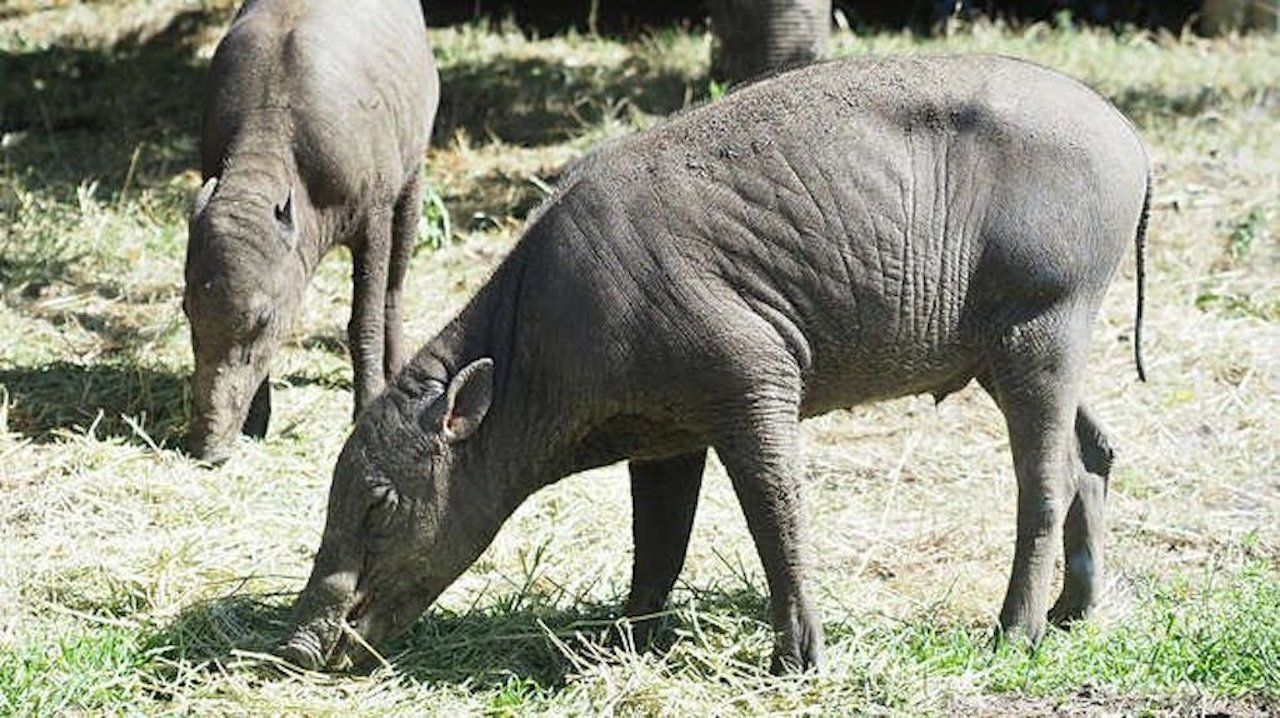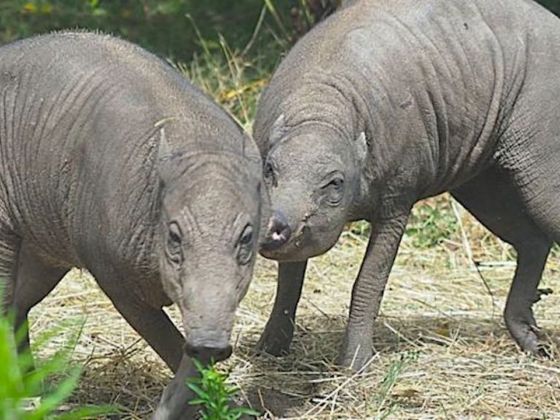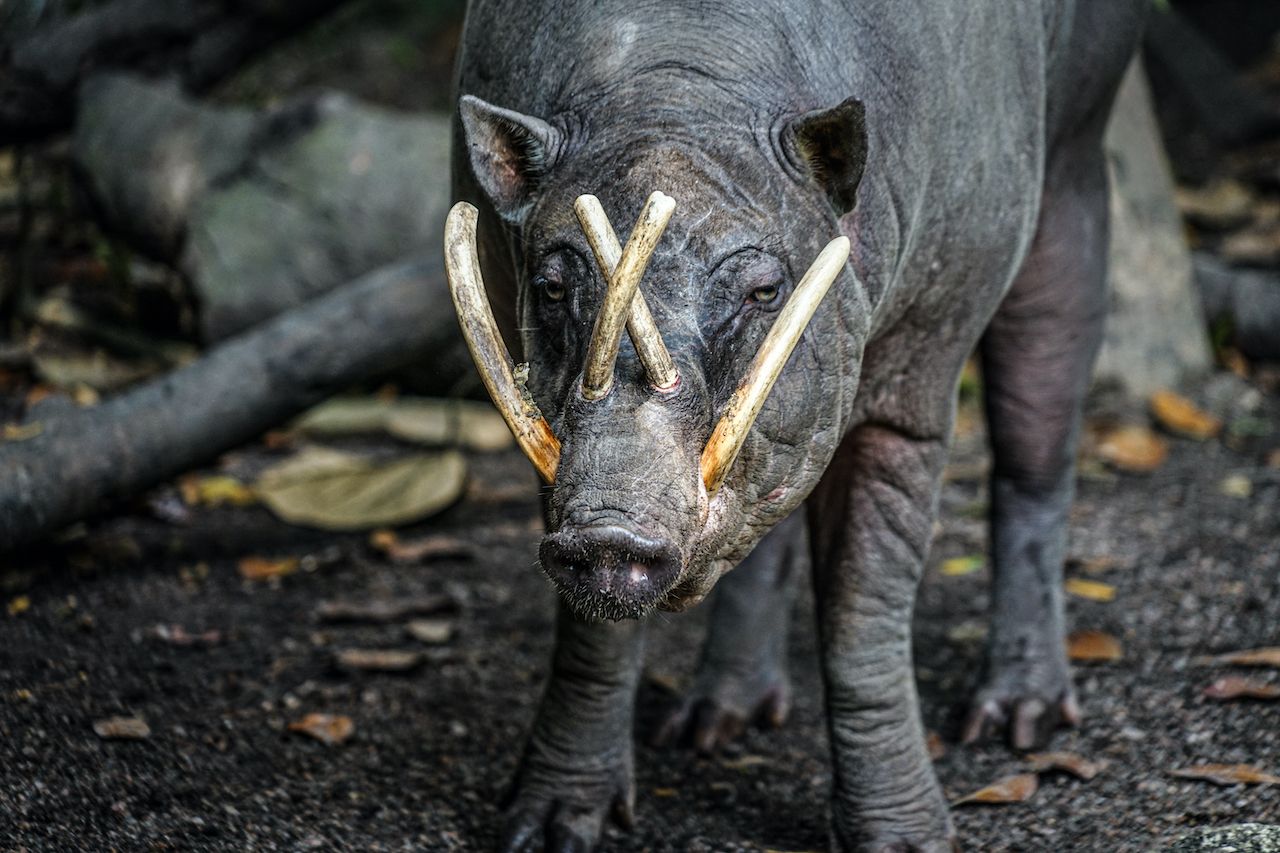It’s always difficult being the new kid on the block, but for these little piggies, it’s extra tough. Not only do they have to deal with the struggles of being new at the London Zoo, but they’re also being called “the ugliest pigs on Earth” and “demon pigs.”

Photo: London Zoo
Budi and Beth are babirusas — a species of pig that is hairless, and has wrinkly gray skin and long, wet snouts — and they joined the zoo as part of an international breeding program for the vulnerable species.

